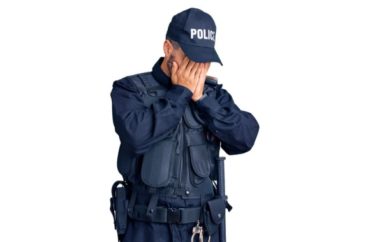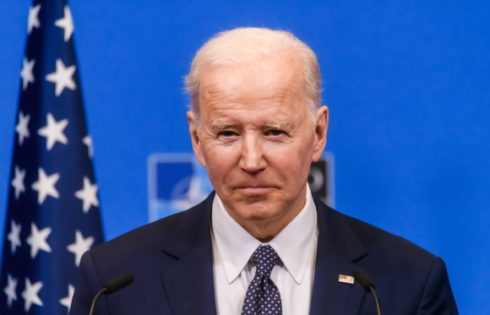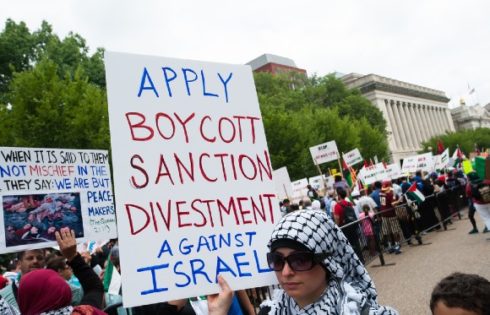
Albuquerque, New Mexico recently played host to one of the latest protests against having police in K-12 schools.
According to the Daily Lobo, some 150 “young people, students, teachers and community members” gathered outside of the Albuquerque Public Schools central office to demand school resource officers, or SROs, be defunded.
The reason? You guessed it: A police presence “contribute[s] to the criminalization of Black and Brown communities and aggravate[s] the school-to-prison pipeline.”
(Funding for police currently totals one-half of one percent of Albuquerque’s district budget.)
University of New Mexico student Isabella Baker, an organizer at the Learning Alliance of New Mexico, argued that the “best education possible” for the state’s children involves getting rid of SROs. She said cops make students feel “unsafe, on edge and uncomfortable in places that are supposed to be meant for them.”
UNM professor Shiv Desai noted “a lot of times” SROs get involved in matters that should be handled by school personnel — instances of “disrespect or noncompliance,” for example. He added that something called the “criminogenic gaze” affects how minority students are treated by teachers and administrators.
Further, Desai contends urban schools “are not institutions of learning and hope but oppression and suppression” due to the presence of SROs and things like metal detectors.
Desai, who taught for a time in a charter school utilizing “hip hop based education and culturally sustaining pedagogy,” believes part of the solution is to “entirely reimagine” the school system. This would entail using things like “restorative justice” as well as “ethnic studies and other culturally focused courses” to end the so-called school-to-prison pipeline.
“Embed[ding] anti-racism” into classes is another.
Are these realistic solutions? Highly unlikely. Although George Floyd’s death has given renewed vigor to the work of racial activists, pretty much anywhere there’s more “relaxed” school discipline the result is more misbehavior (not unlike what we’ve seen in American big cities the last few months, eh?).
The fact is is the vast majority of SROs — like cops in general — are good people and do their jobs well. They don’t “target” black and brown children, and just because they might get involved in a situation doesn’t mean a kid will be tarnished by legal paper trail.
(By the way — ask a teacher if he/she likes it when a few lemons are used to tarnish their entire profession.)
Another unfortunate fact is that many schools, especially in inner cities, harbor dangerous students. No amount of “talking circles” or ethnic studies courses, or hip hop pedagogy is going to substantially alter these kids’ behavior. And by solely making use of such measures — without a person like an SRO around — teachers and administrators show they care more about their own radical dogma than the safety and learning environment for the vast majority of their students.
One more thing: Kids aren’t dumb. If I had a nickel for every student I saw come back from a restorative justice-style session with a smirk on his face, I’d have made a decent coin. They laugh at counselors and administrators who get all touchie-feelie with them, and will promptly return to the misbehavior that got them in trouble in the first place.
MORE: A student stole my car and got no discipline from the school, cops
MORE: Study: Teachers still want suspensions used as discipline measure
IMAGE: Krakenimages.com / Shutterstock.com
Like The College Fix on Facebook / Follow us on Twitter







Please join the conversation about our stories on Facebook, Twitter, Instagram, Reddit, MeWe, Rumble, Gab, Minds and Gettr.